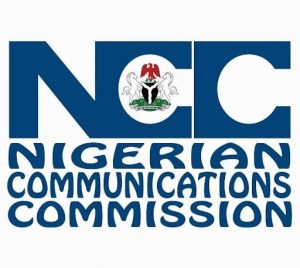Joy Agwunobi
The Nigerian Communications Commission (NCC) is setting new standards to streamline the complexities of telecom tariff plans in Nigeria, aiming to bring clarity and convenience to millions of subscribers.
With the four major telecommunications operators MTN, Airtel, Globacom, and 9mobile offering a combined 369 tariff plans, the Commission has identified a pressing need to simplify these offerings.
This overwhelming array of options has left subscribers grappling with confusion and uncertainty. According to NCC findings, most of these tariff plans originated as promotional packages but were later converted into full-fledged offerings. This evolution has created pricing inconsistencies and a lack of transparency, making it difficult for consumers to identify plans that best suit their needs.
The NCC’s investigation revealed that MTN alone accounts for 159 of these plans, including 14 for voice and 145 for data. Airtel, the second-largest operator, offers 68 plans, 27 for voice and 41 for data. Globacom contributes 38 plans, with 6 for voice and 32 for data, while 9mobile offers 104, including 7 for voice and 97 for data.
The commission noted that the abundance of options often leaves subscribers unaware of the actual tariffs they are being charged. According to Ikechukwu Adinde, the NCC’s director of consumer affairs, many of these plans appear so similar that subscribers cannot distinguish between them. This confusion, compounded by a lack of clear communication from operators, has created a dilemma for consumers trying to choose plans that provide the best value for money.
Adinde explained that operators sometimes apply different charges for main and bonus accounts without clearly communicating this to consumers. This lack of transparency has fueled frustrations, as users feel they are not fully informed about the costs associated with their data and voice usage.
To address these issues, the commission noted that it is reducing the number of tariff plans each operator can offer. The simplified structure will ensure that each operator maintains seven core tariff plans for data, bundled with voice, SMS, and promotional offers. The reform will help users understand their options better while enabling the NCC to monitor compliance more effectively.
Adinde emphasised that the initiative is designed to enhance the quality of consumer experience, ensuring all tariff plans are clear, user-friendly, and transparent. He further noted that plans featuring promotional elements will be classified separately as promotions and subject to quality-of-service evaluations by the Commission.
In recent times, one of the most frequent complaints from subscribers is the issue of data depletion. Users report exhausting their data bundles before the due date, often due to unclear terms or additional data consumed while browsing online content.
The NCC’s reforms come at a time when data has become indispensable to everyday life. With the rise of fintech platforms like Opay, Palmpay, and Moniepoint, Nigerians are increasingly relying on internet connectivity for financial transactions, business operations, and social engagements.
However, the high cost of data and complex tariff structures have made it difficult for many to fully enjoy these benefits.
In May of this year, the NCC analysis of consumer complaints identified data depletion and billing issues as the top concerns. In response, the Commission directed operators to audit their billing systems and provide detailed explanations of data usage to subscribers. This includes introducing tables that outline tariffs, bonuses, and charges to eliminate ambiguity.
According to Aminu Maida, the NCC’s Executive Vice Chairman, this effort is part of a broader campaign to restore consumer trust in the telecom sector. By simplifying tariff plans and enhancing transparency, the NCC seeks to foster digital inclusion and ensure that subscribers can fully participate in the evolving digital economy without being burdened by confusing or unfair pricing structures.
“The goal is to ensure that every subscriber understands how their data is used and what they are paying for. Transparency is key to achieving this,” Maida said at the 93rd Telecoms Consumer Parliament.
As the NCC’s reforms roll out in the coming months, telecom subscribers can anticipate a more streamlined, user-friendly experience. By addressing long-standing issues like tariff complexity, data depletion, and billing transparency, the Commission is reaffirming its commitment to protecting consumer rights and enhancing digital equity in Nigeria.









